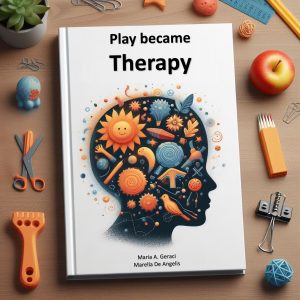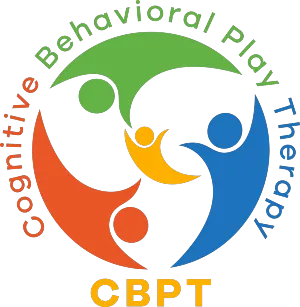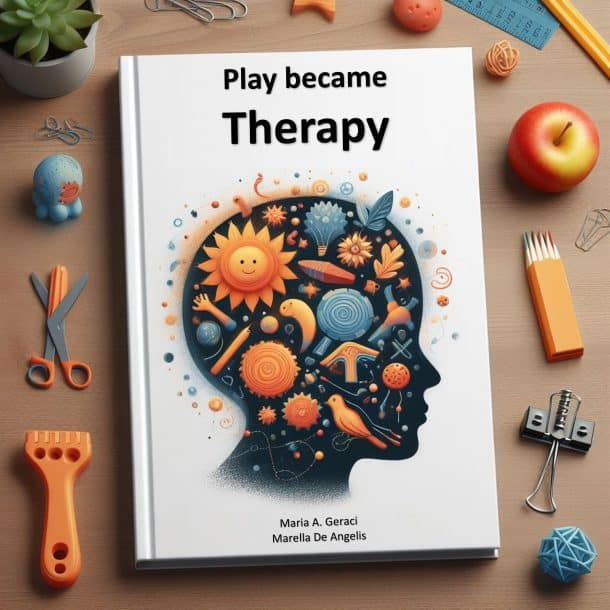Manuales de terapia cognitivo-conductual basada en el juego
La Terapia de Juego Cognitivo-Conductual (TGCC), nacida de la fusión de la Terapia Cognitivo-Conductual (TCC) y la Terapia de Juego (TJ), es, ante todo, una psicoterapia basada en la teoría. Está dirigida a niños de entre 3 y 8 años, considerados la franja de edad más adecuada para la TGCC, aunque niños mayores también pueden beneficiarse. Dado que la TGCC se basa en los principios de la terapia cognitivo-conductual, ha integrado estos últimos en un enfoque sensible al desarrollo con intervenciones tanto verbales como lúdicas, precisamente porque el juego es un aspecto fundamental, especialmente para los niños pequeños, cuyas habilidades lingüísticas aún no están bien desarrolladas. Aunque generalmente pensamos en cómo los pensamientos irracionales influyen en los comportamientos y emociones, este aspecto tiene más sentido para los adultos que tienen un lenguaje y un razonamiento más desarrollados para reflexionar sobre experiencias pasadas. Para los niños más pequeños, con menos experiencias aprendidas, con un lenguaje menos desarrollado y, en particular, con una menor capacidad de razonar por qué estos pensamientos pueden ser considerados irracionales, los mismos podrían ser mejor considerados como desadaptativos.
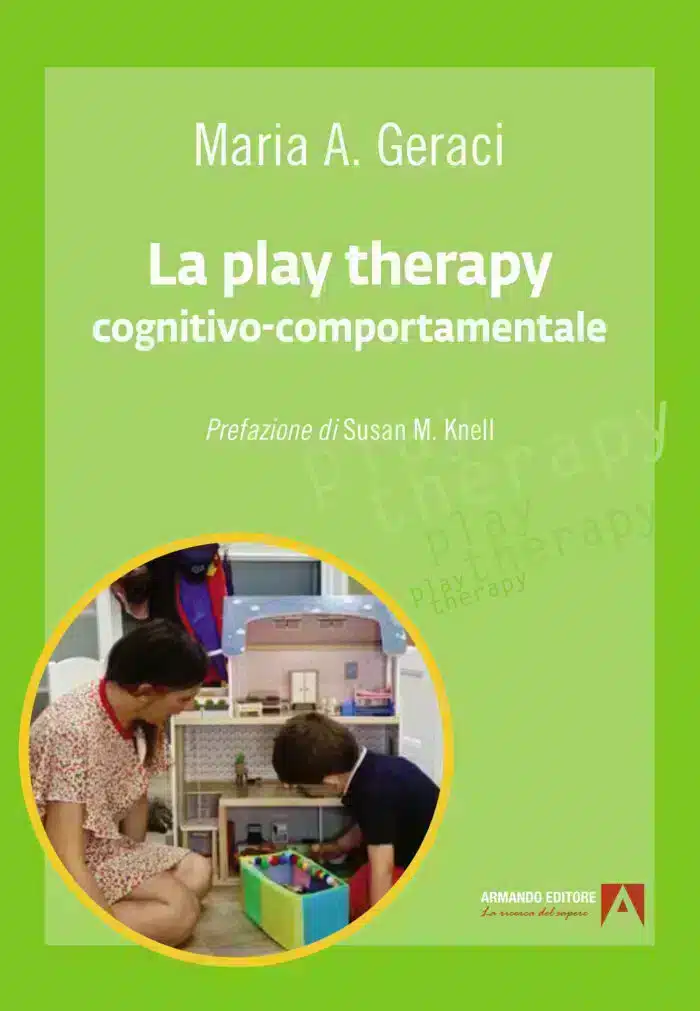

LINGUA ITALIANA
La Terapia de juego
Cognitivo-conductual
CONTENIDO
La Terapia de Juego Cognitivo-Conductual fue desarrollada por Susan M. Knell y, en la actualidad, es una intervención que adapta las técnicas CBT respaldadas empíricamente en un entorno de juego con niños pequeños. La Terapia de Juego Cognitivo-Conductual enfatiza la participación directa del niño, con diversas problemáticas, en el proceso terapéutico. Todo el trabajo en Terapia de Juego Cognitivo-Conductual incluye encuentros regulares con los padres con el fin de recopilar información sobre los progresos del niño, monitorear e intervenir en la interacción padre-hijo y brindar indicaciones fundamentales para el logro de los objetivos terapéuticos.
AUTOR
María A. Geraci es psicóloga del desarrollo y de la educación, y psicoterapeuta cognitivo-conductual. Autora de varias publicaciones nacionales e internacionales, actualmente es directora del Centro de Investigación CBPT en Roma y profesora contratada en diversas escuelas de Especialización en Psicoterapia reconocidas por el MIUR, así como en varios másteres universitarios. Cuenta con veinte años de experiencia en la formación de profesores de todos los niveles educativos.
Presentación del Libro
Terapia de Juego Cognitivo-Conductual
de Maria Angela Geraci
Comprar el libro
Ver el índice
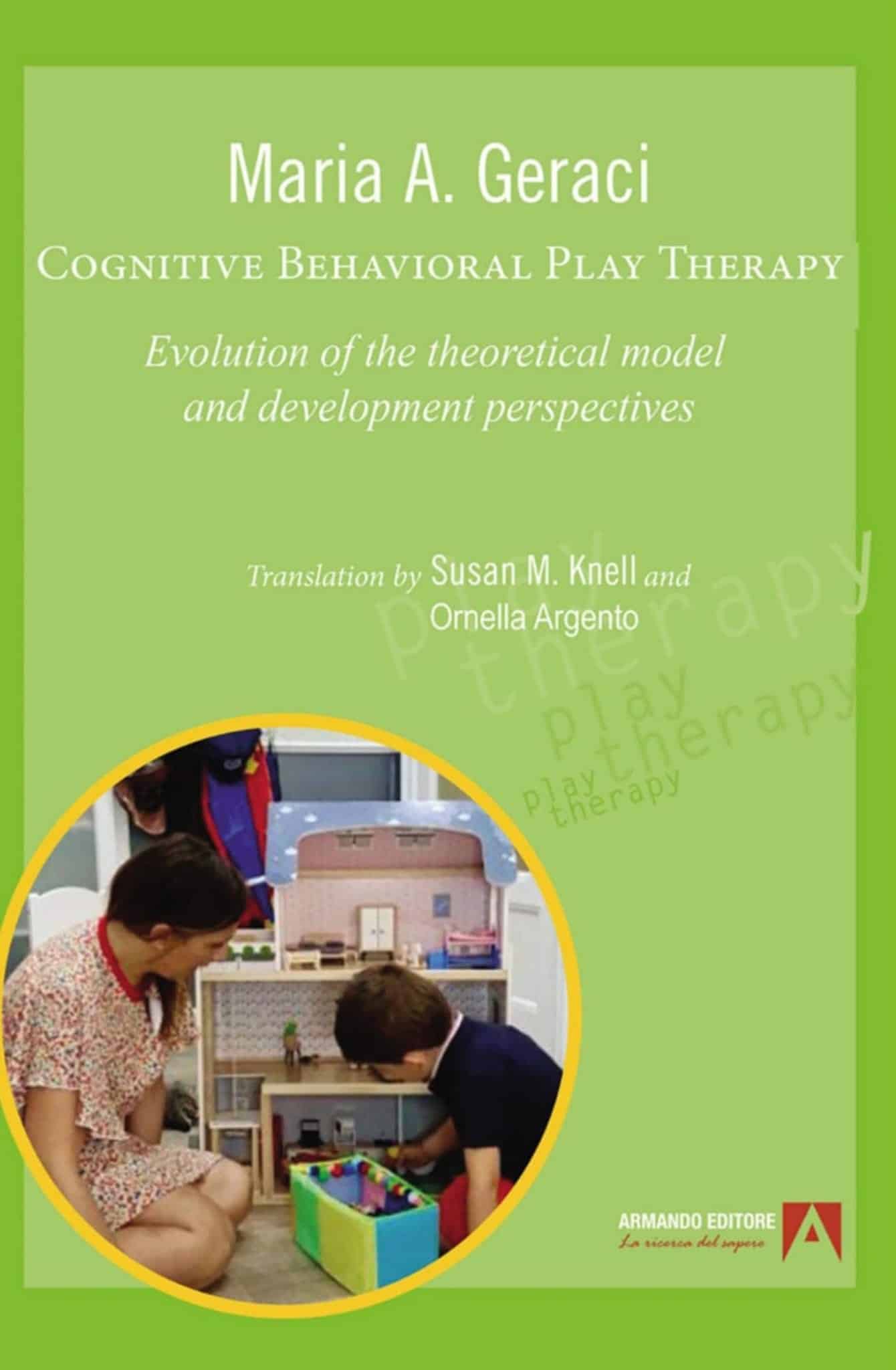

LINGUA INGLESE
Terapia de Juego Cognitivo-Conductual: Evolución del modelo teórico y perspectivas de desarrollo.
CONTENIDO
Treinta años después de sus primeras aplicaciones, la Terapia de Juego Cognitivo-Conductual (TPJC) vuelve a ocupar un lugar central como terapia de elección para la infancia. Nació como una terapia dirigida a niños, incluidos los preescolares, capaz de integrar técnicas CBT basadas en evidencia dentro del paradigma de la Terapia de Juego.
El volumen presenta la actualización del modelo teórico de la TPJC por Maria Angela Geraci, donde, además de integrar todos los estudios presentes en la literatura, subraya el papel decisivo de la conceptualización del caso en la TPJC. Finalmente, define un camino para seleccionar herramientas y procedimientos apropiados junto con un diseño de ruta para futuras investigaciones.
AUTOR
María A. Geraci es psicóloga del desarrollo y de la educación, y psicoterapeuta cognitivo-conductual. Autora de varias publicaciones nacionales e internacionales, actualmente es directora del Centro de Investigación CBPT en Roma y profesora contratada en diversas escuelas de Especialización en Psicoterapia reconocidas por el MIUR, así como en varios másteres universitarios. Cuenta con veinte años de experiencia en la formación de profesores de todos los niveles educativos.
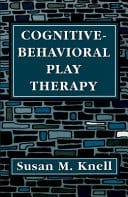

LINGUA INGLESE
COGNITIVE BEHAVIORAL PLAY THERAPY
CONTENT
Cognitive-Behavioral Play Therapy (CBPT) incorporates cognitive and behavioral interventions within a play therapy paradigm. It provides a theoretical framework based on cognitive-behavioral principles and integrates these in a developmentally sensitive way. Thus, play as well as verbal and nonverbal approaches are used in resolving problems. CBPT differs from nondirective play therapy, which avoids any direct discussion of the child’s difficulties. A specific problem-solving approach is utilized, which helps the child develop more adaptive thoughts and behaviors. Cognitive-behavioral therapies are based on the premise that cognitions determine how people feel and act, and that faulty cognitions can contribute to psychological disturbance. Cognitive-behavioral therapies focus on identifying maladaptive thoughts, understanding the assumptions behind the thoughts, and learning to correct or counter the irrational ideas that interfere with healthy functioning. Since their development approximately twenty-five years ago, such therapies have traditionally been used with adults and only more recently with adolescents and children. It has commonly been thought that preschool-age and school-age children are too young to understand or correct distortions in their thinking. However, the recent development of CBPT reveals that cognitive strategies can be used effectively with young children if treatments are adapted in order to be developmentally sensitive and attuned to the child’s needs. For example, while the methods of cognitive therapy can be communicated to adults directly, these may need to be conveyed to children indirectly, through play activities. In particular, puppets and stuffedanimals can be very helpful in modeling the use of cognitive strategies such as countering irrational beliefs and making positive self-statements. CBPT is structured and goal oriented and intervention is directive in nature. It incorporates empirically demonstrated cognitive and behavioral techniques and allows for the empirical examination of treatment outcome. This long-awaited volume will be useful to clinicians of every theoretical persuasion in enabling them to formulate fresh approaches for helping their young patients.
AUTHOR
Susan M. Knell holds a PhD in Clinical Psychology and a MA in Developmental Psychology. She is the author of the book, Cognitive Behavioral Play Therapy (1993) which has been translated into Italian and Turkish. As the first to study and write about the application of Cognitive Behavior Therapy to young children, she integrated Cognitive Behavioral interventions and Play therapy in developmentally sensitive ways. She has written chapters on CBPT in many edited books on Play Therapy. As a clinical Psychologist, she has provided assessment and therapeutic services to children, adolescents, and adults for almost 40 years. In addition to her clinical practice, she supervises graduate students, trains mental health professionals internationally, and has done research and teaching.
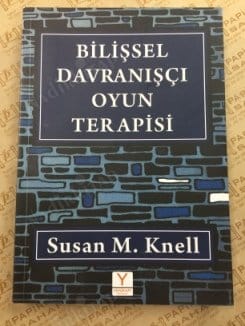
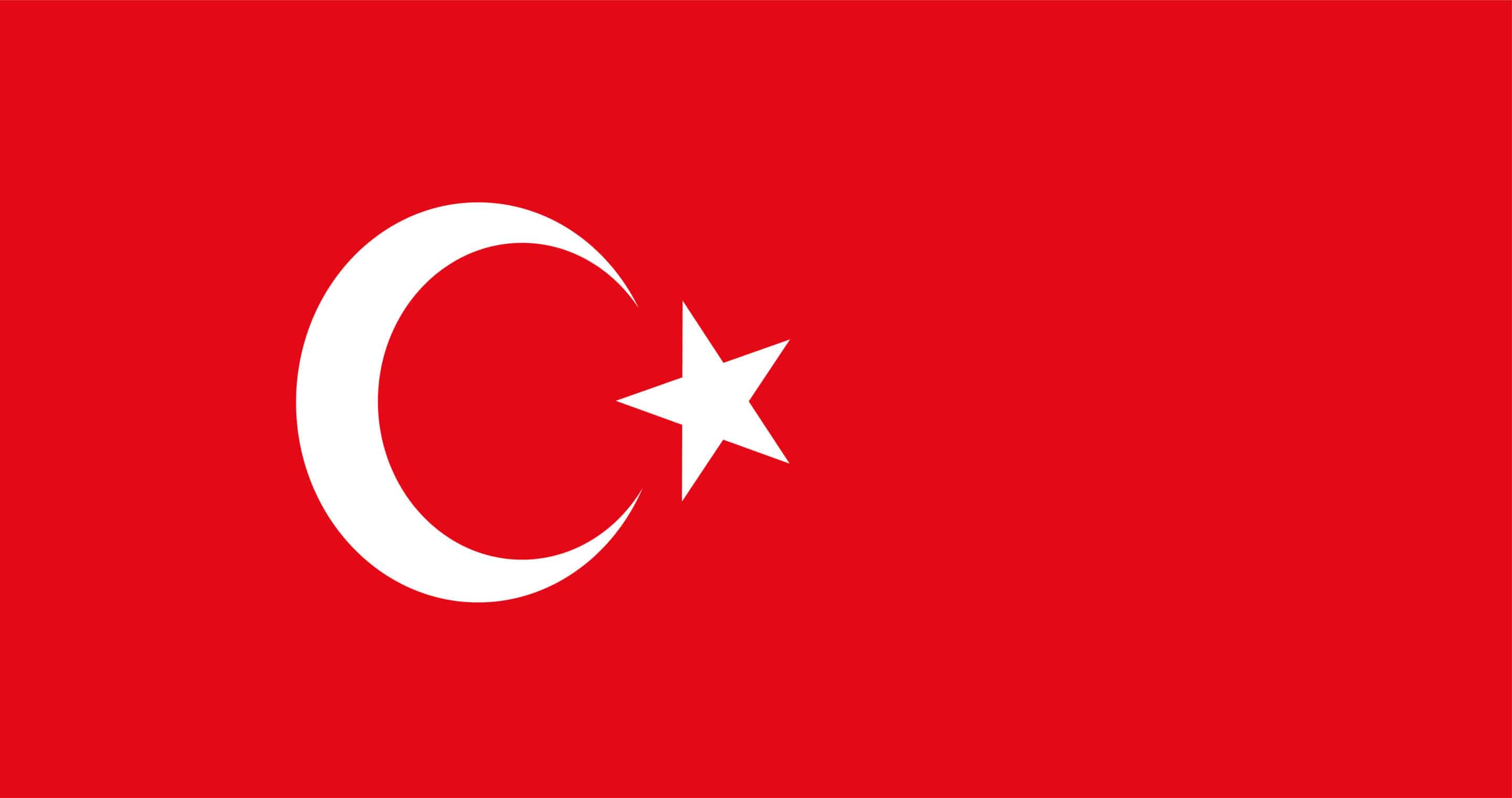
LINGUA TURCA
BİLİŞSEL DAVRANIŞCI OYUN TERAPİSİ
CONTENUTO
BİLİŞSEL DAVRANIŞCI OYUN TERAPİSİ HAKKINDA Bilişsel Davranışçı Oyun Terapisi (BDOT) oyun terapisi paradigması içinde bilişsel ve davranışçı müdahaleleri birleştirmektedir. Bilişsel-davranışçı ilkelere dayanan teorik bir çerçeve sağlamaktadır ve bunları gelişimsel olarak hassas bir yolla bütünleştirmektedir. Böylece, sözlü ve sözlü olmayan yaklaşımların yanında oyun, problemlerin çözümünde kullanılmaktadır. Bilişsel-davranışçı terapiler, bilişlerin insanların nasıl hissettiği ve davrandığını belirlediği ve hatalı bilişlerin psikolojik rahatsızlıklara yol açtığı temel varsayımına dayanmaktadır. Bilişsel-davranışçı terapiler uyumsuz düşünceleri belirlemeye, düşüncelerin arkasındaki çıkarımları anlamaya ve sağlıklı bilişsel işleyişe engel olan mantıksız fikirleri düzeltmeye odaklanmaktadır. Gelişimi yaklaşık yirmi beş yıl öncesine dayanan bu gibi terapiler geleneksel olarak yetişkinlerle kullanılmaktayken; son zamanlarda ergenler ve çocuklarla da kullanılmaya başlanmıştır. Okul öncesi ve okul dönemindeki çocuklarının düşünce sistemlerindeki çarpıtmaları anlamak ve düzeltmek için çok küçük oldukları yaygın olarak kabul görmektedir. Bununla birlikte, BDOT’daki yeni gelişmeler, tedavi gelişimsel olarak duyarlı olursa ve çocukların ihtiyaçlarına uyum sağlanarak düzenlenirse, bilişsel stratejilerin küçük çocuklarla da etkin bir şekilde kullanılabileceğini göstermektedir. Örneğin, bilişsel terapi metotları yetişkinlerle direk konuşulurken, çocuklara dolaylı olarak, oyun faaliyetleri ile iletilmelidir. Özellikle, kuklalar ve oyuncak hayvanlar mantıksız davranışlara karşı gelme ve pozitif öz ifade gibi bilişsel stratejilerin kullanılmasını modellemede çok faydalı olabilmektedir. BDOT, yapılandırılmış ve hedef odaklıdır ve müdahalesi doğası gereği yönlendiricidir. Bilişsel Davranışçı Oyun Terapisi (BDOT), “Yenikapı- Psikoloji ve Terapi Yayınları” tarafından okurlara sunulmuştur.
AUTORE
Susan M. Knell holds a PhD in Clinical Psychology and a MA in Developmental Psychology. She is the author of the book, Cognitive Behavioral Play Therapy (1993) which has been translated into Italian and Turkish. As the first to study and write about the application of Cognitive Behavior Therapy to young children, she integrated Cognitive Behavioral interventions and Play therapy in developmentally sensitive ways. She has written chapters on CBPT in many edited books on Play Therapy. As a clinical Psychologist, she has provided assessment and therapeutic services to children, adolescents, and adults for almost 40 years. In addition to her clinical practice, she supervises graduate students, trains mental health professionals internationally, and has done research and teaching.
